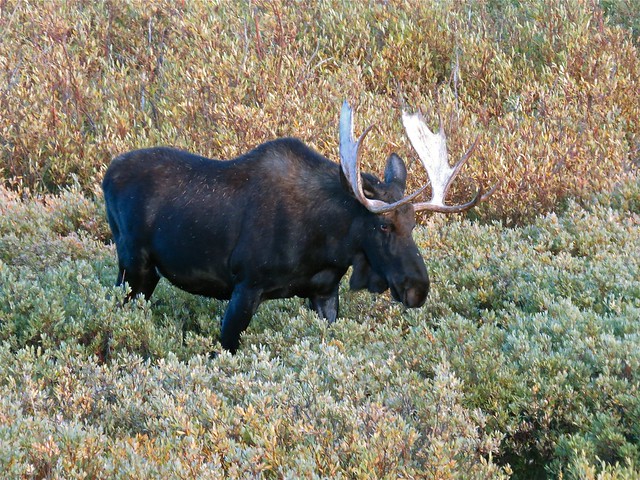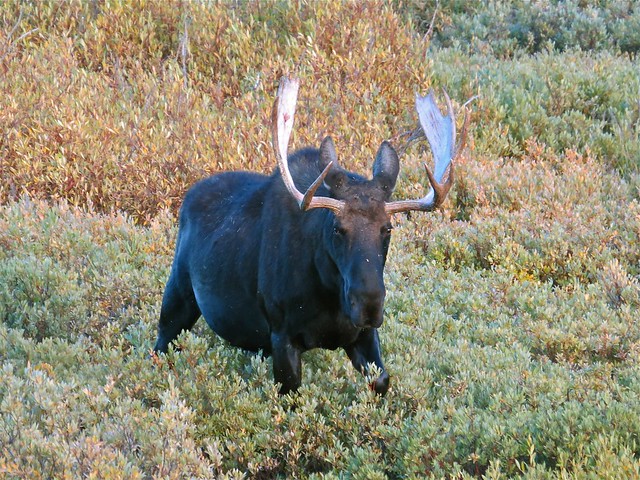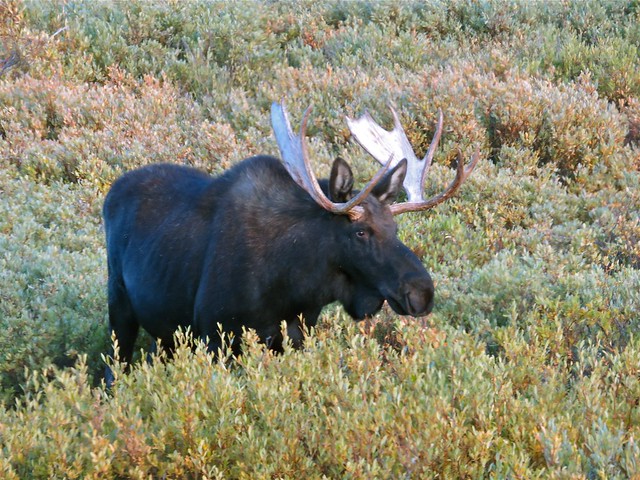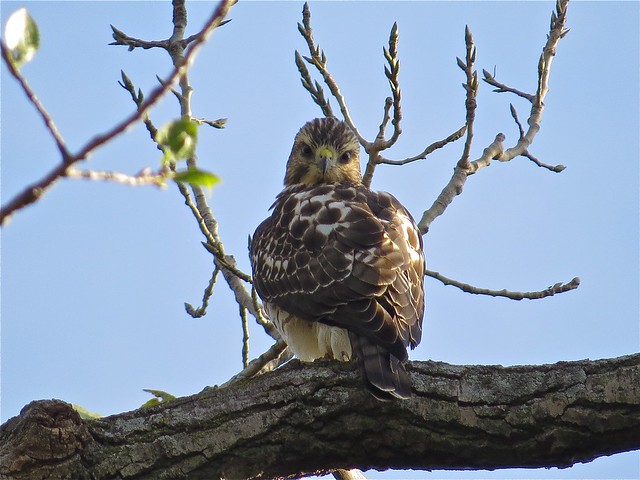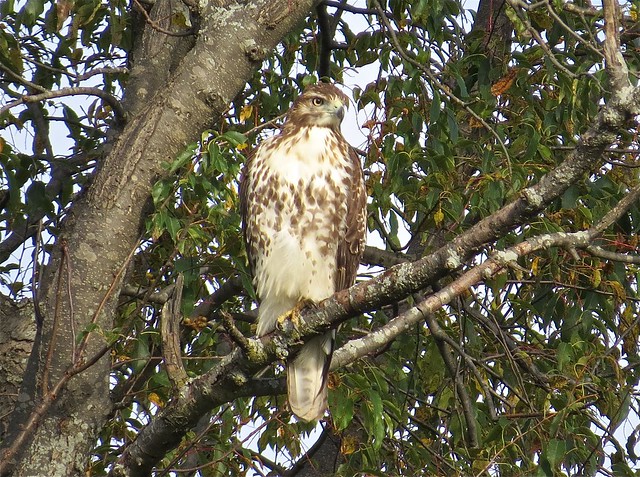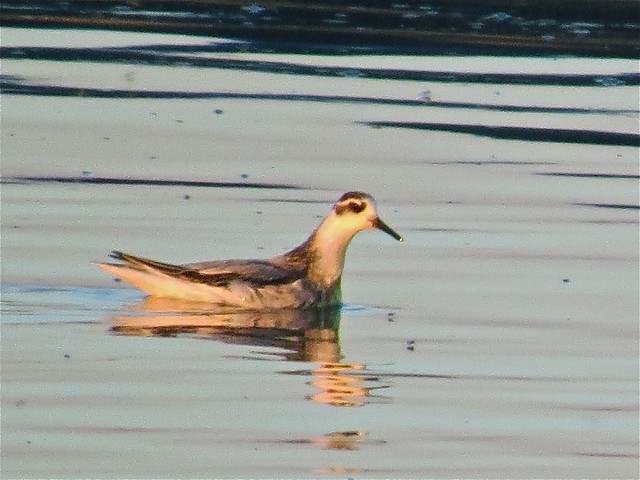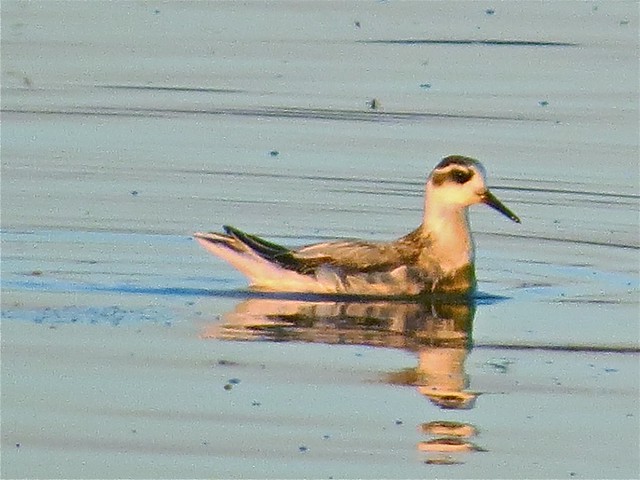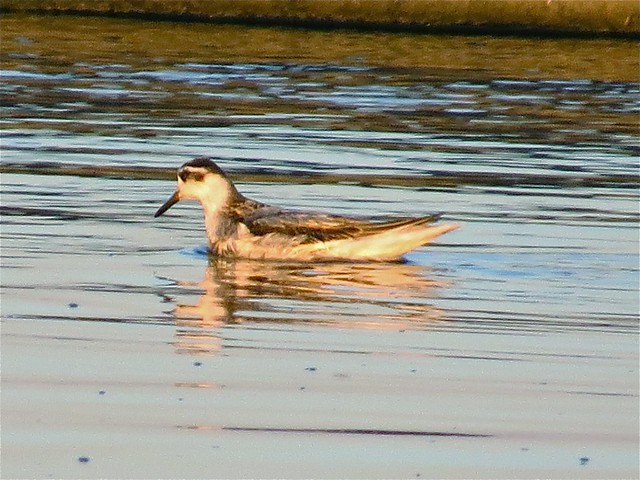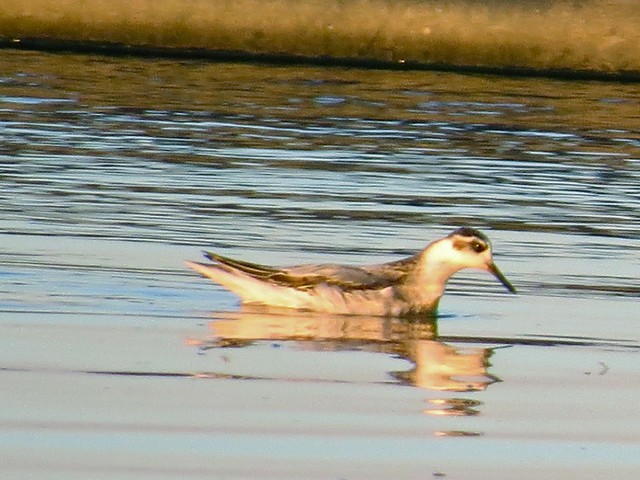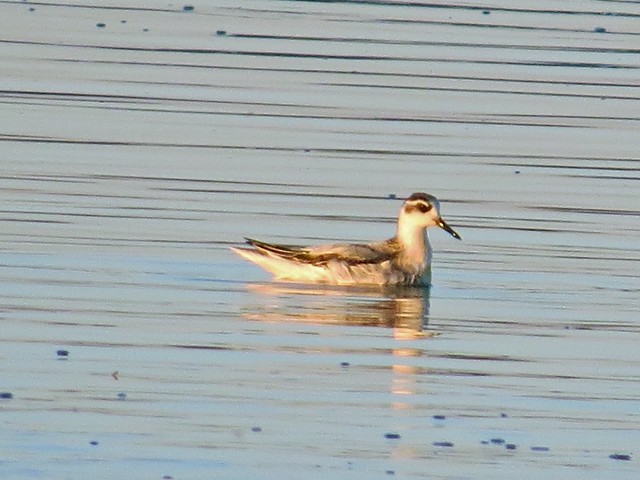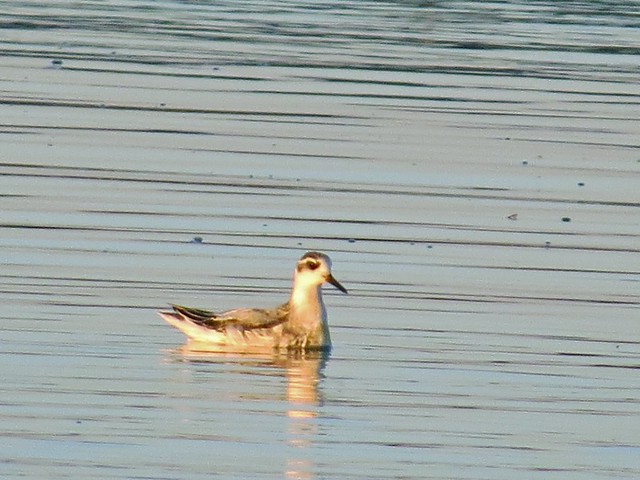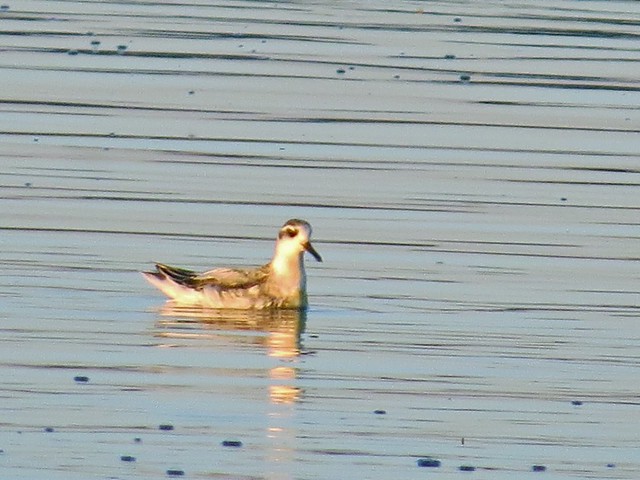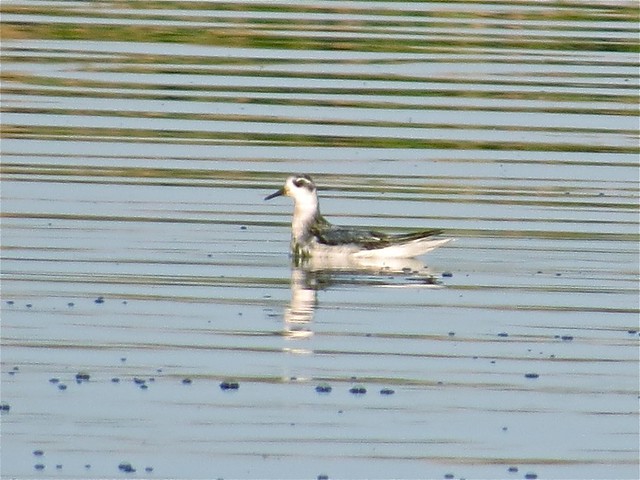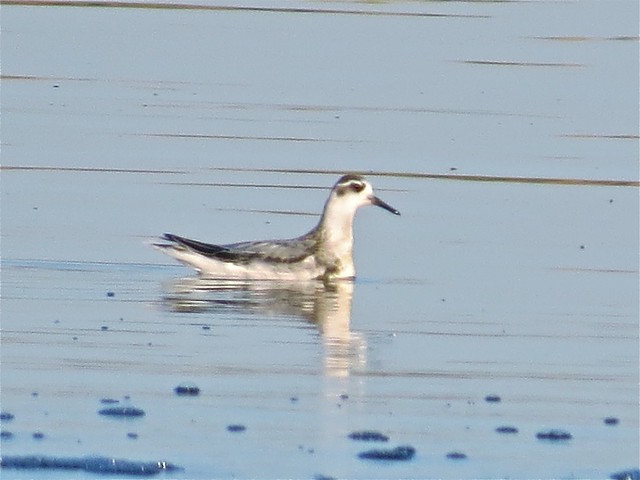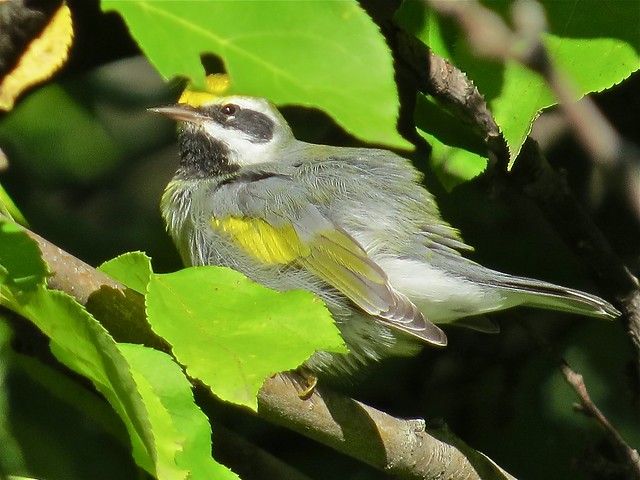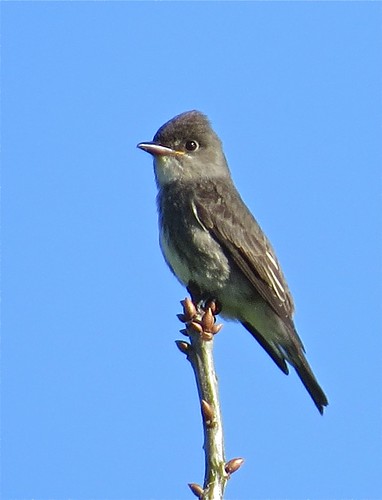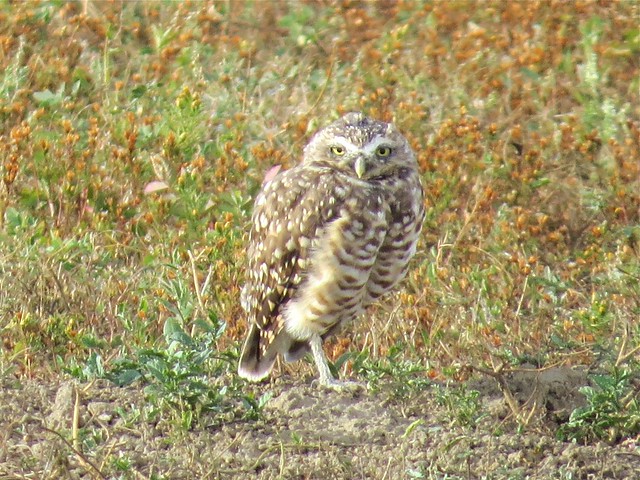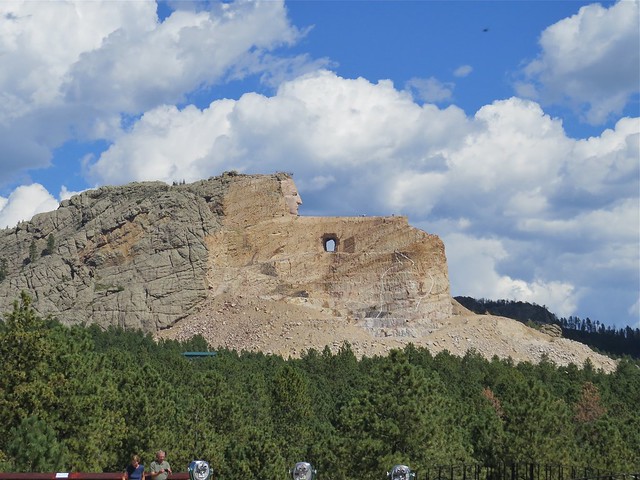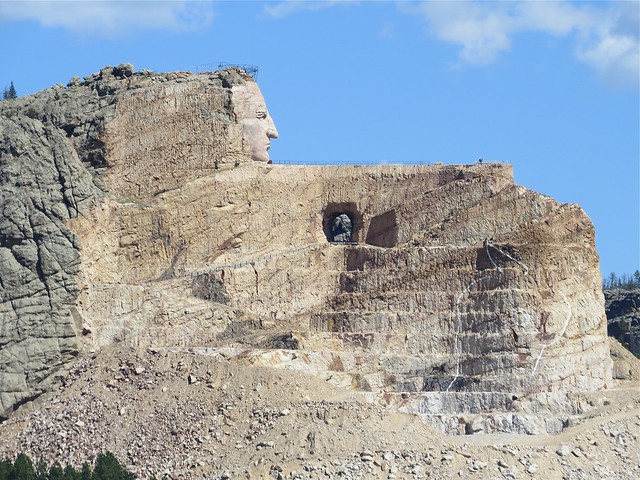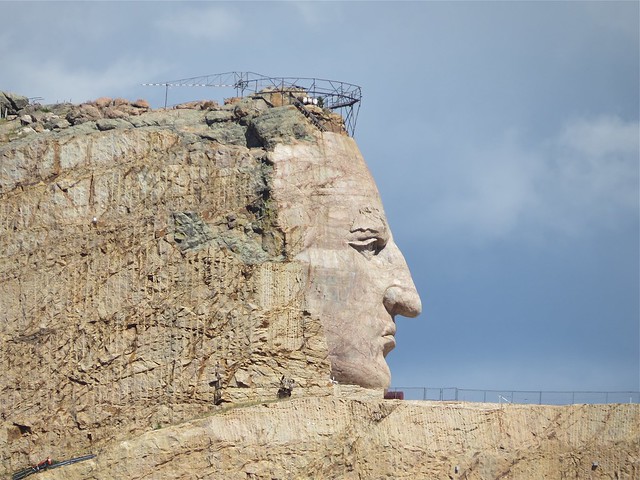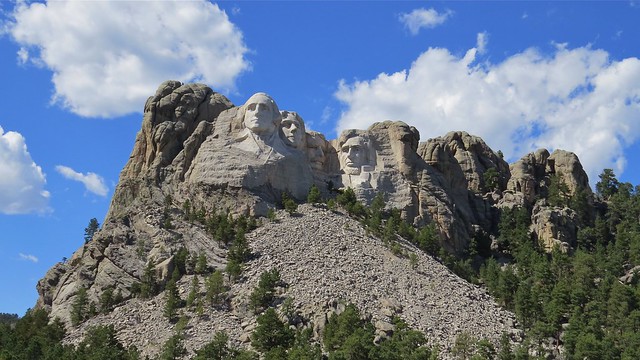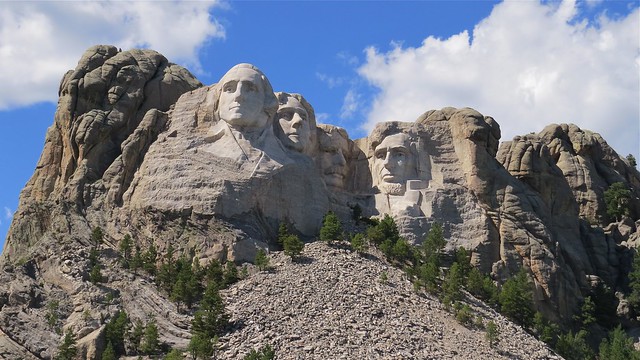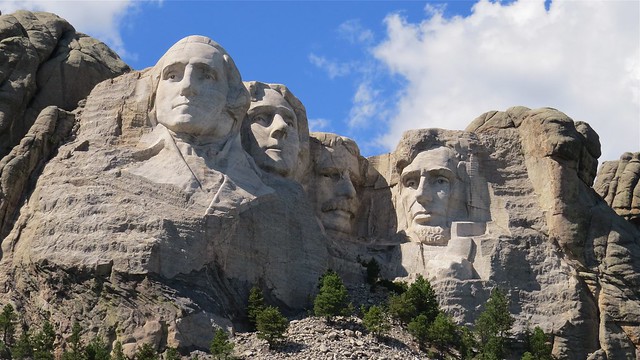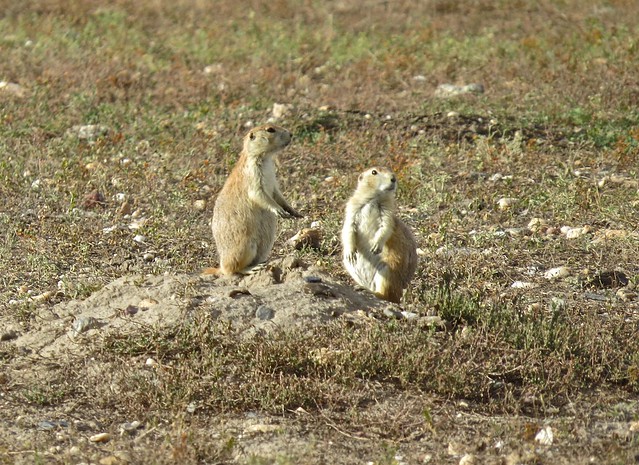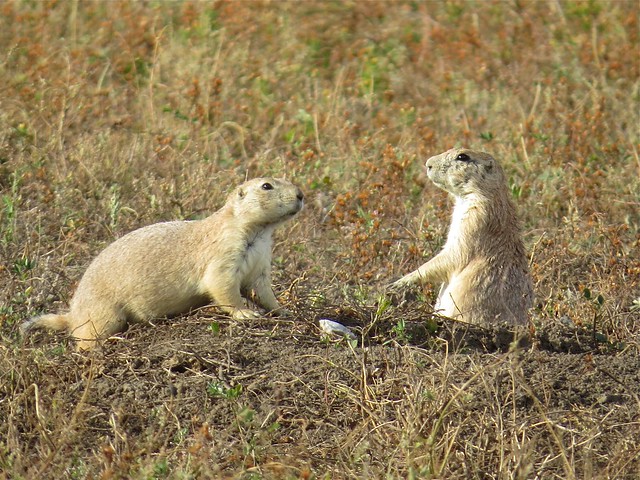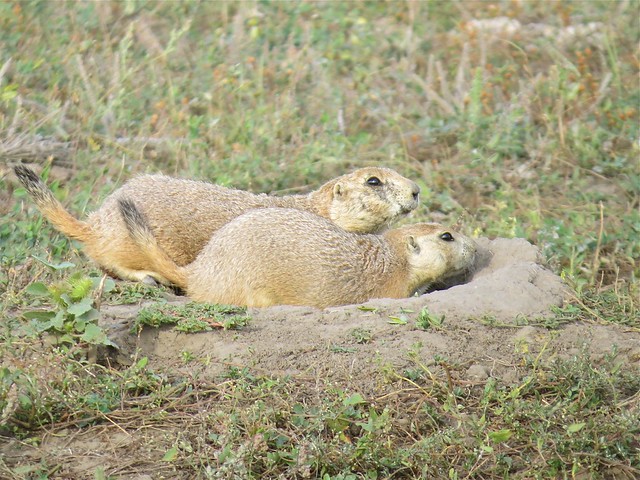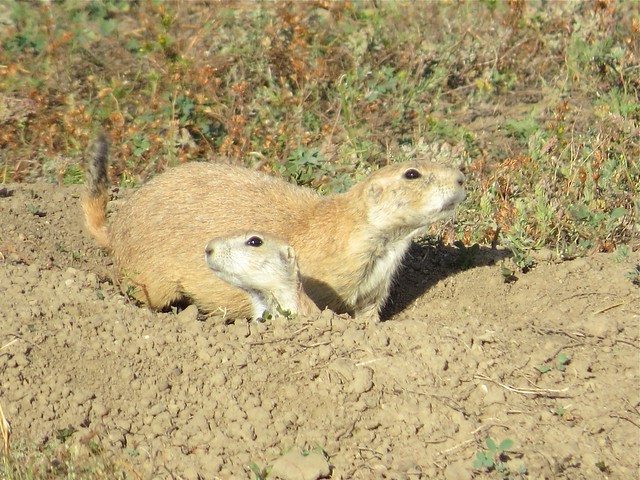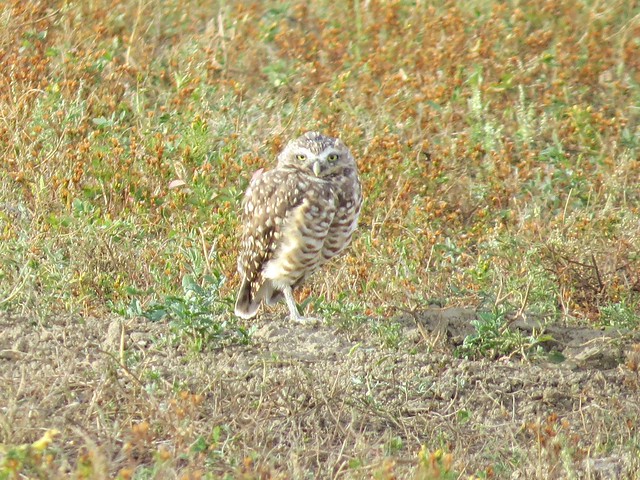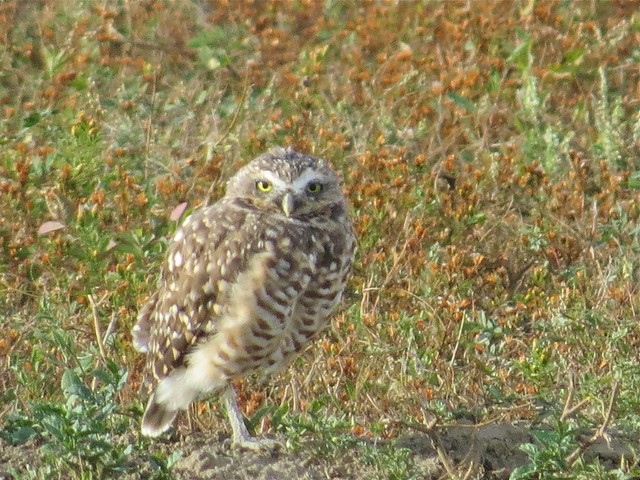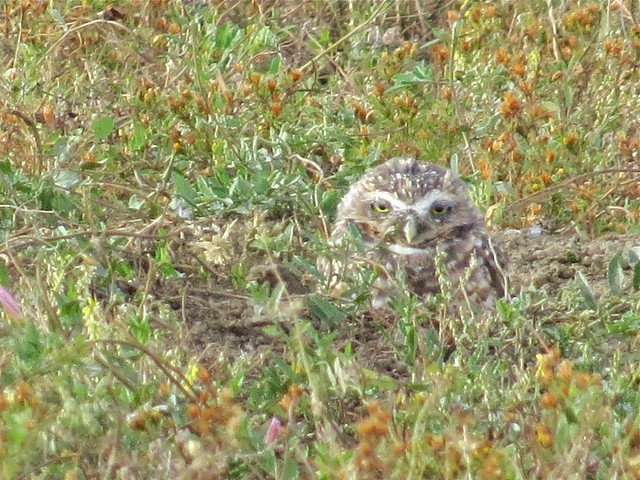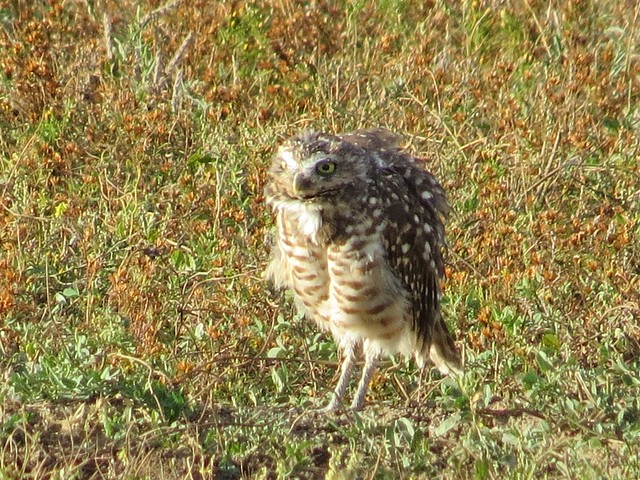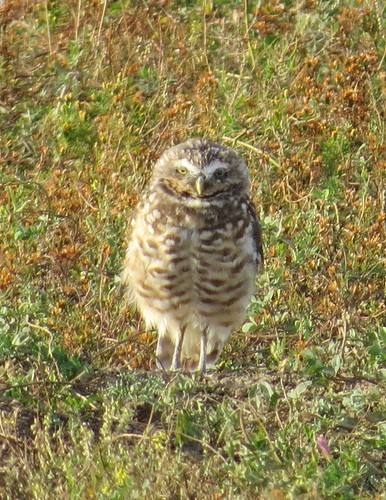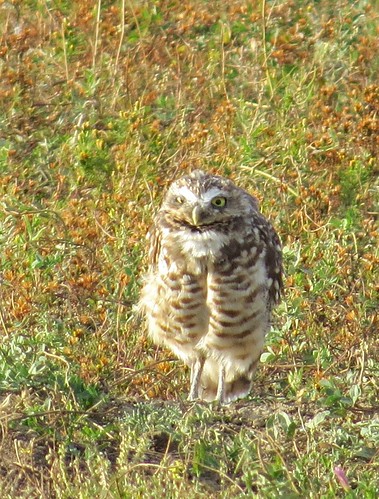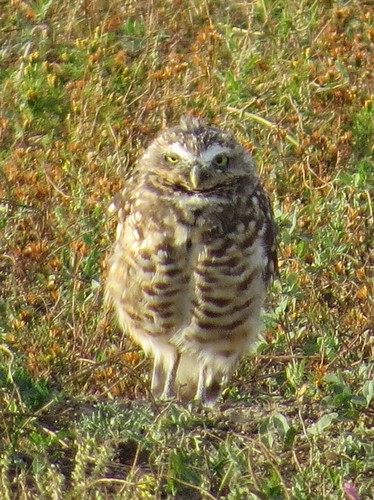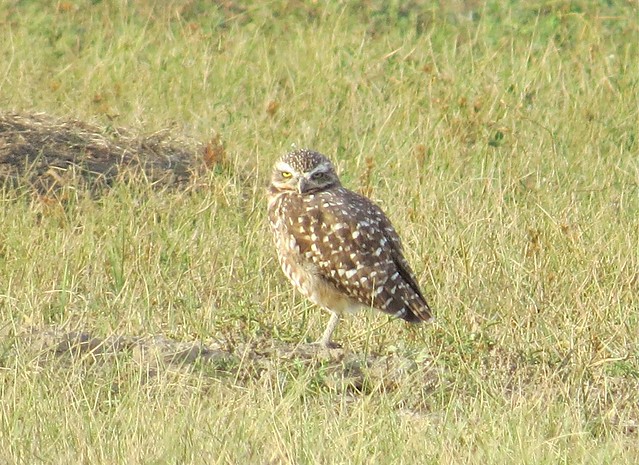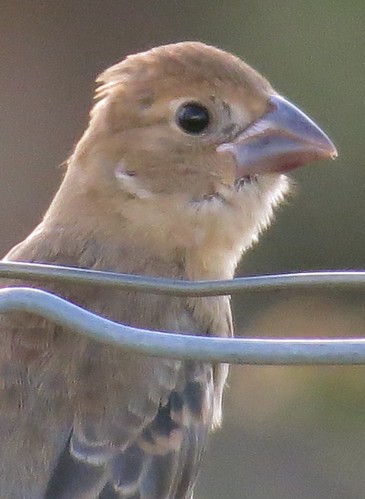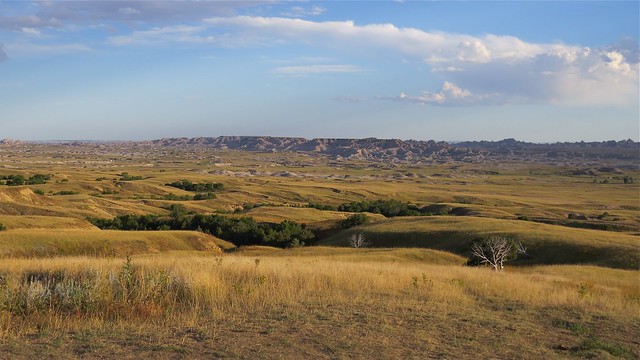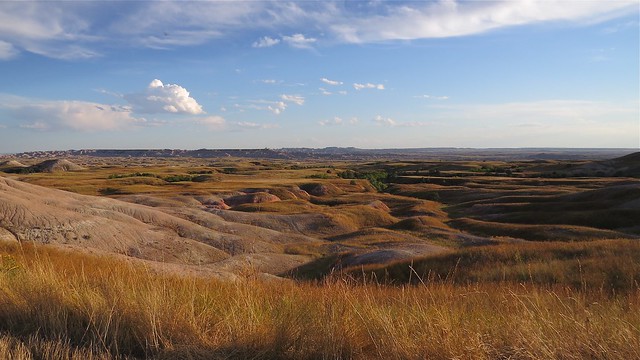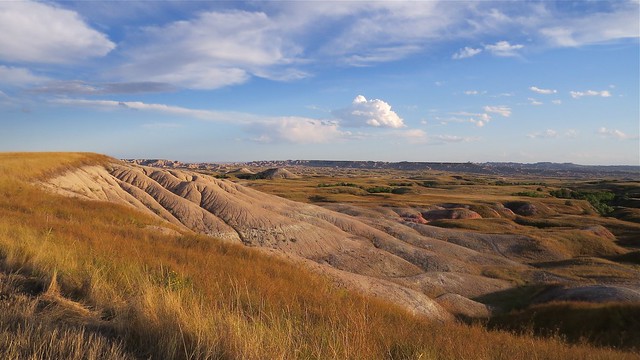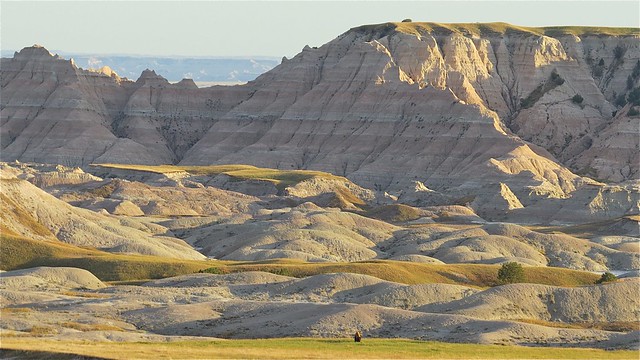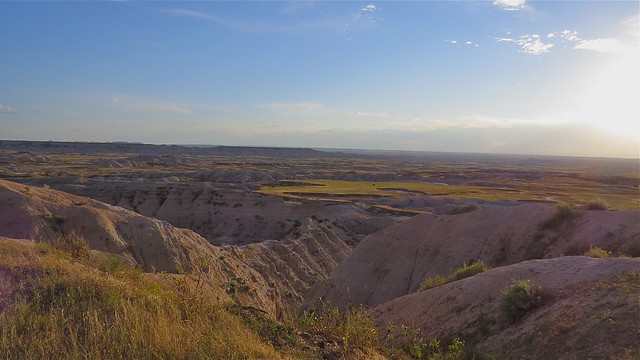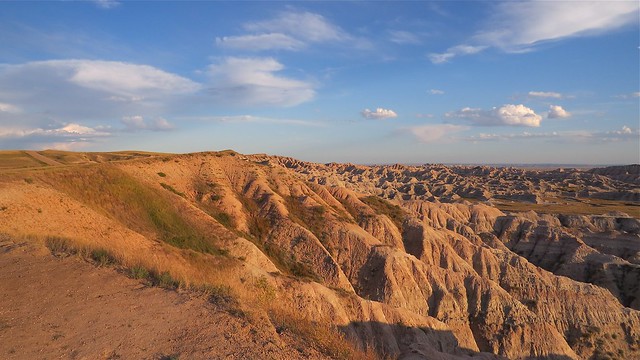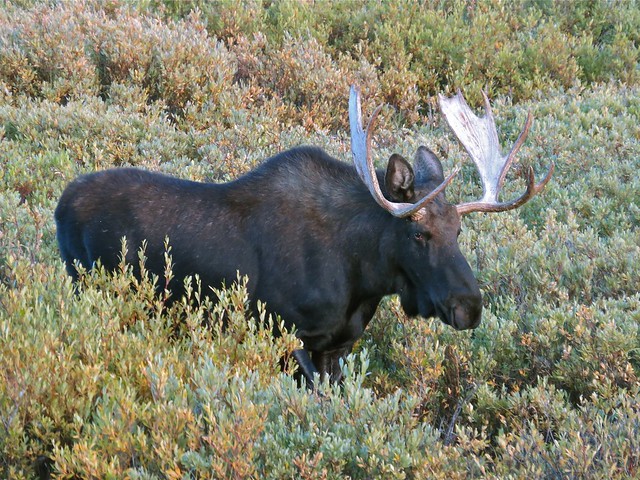
On Saturday morning, we left our hotel in Gardiner, WY, and once again, we drove South to the North Entrance of Yellowstone. Just East of Mammoth in the park, we stopped to see some Elk.
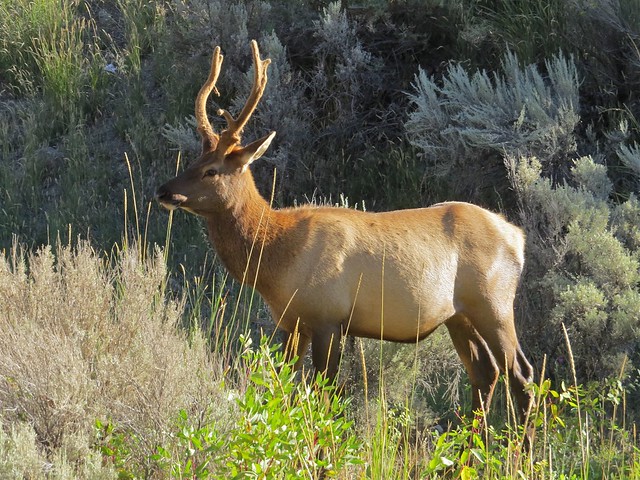
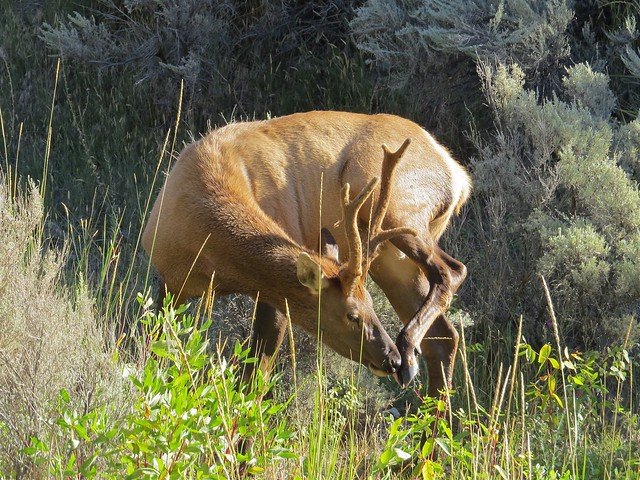
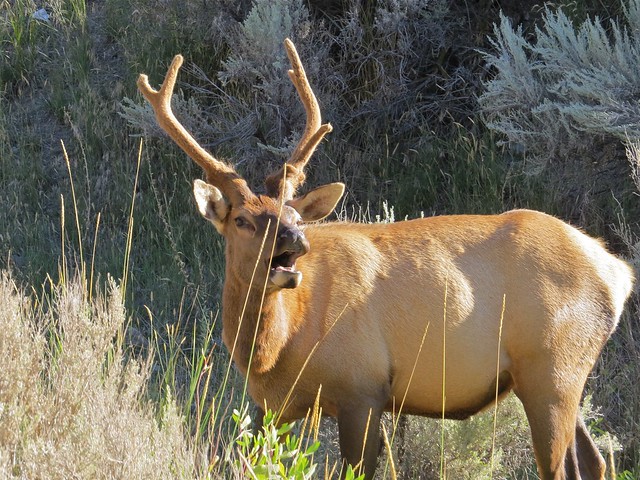
As we continued East, we saw our first Mule Deer. Unfortunately, it would not turn around for us.
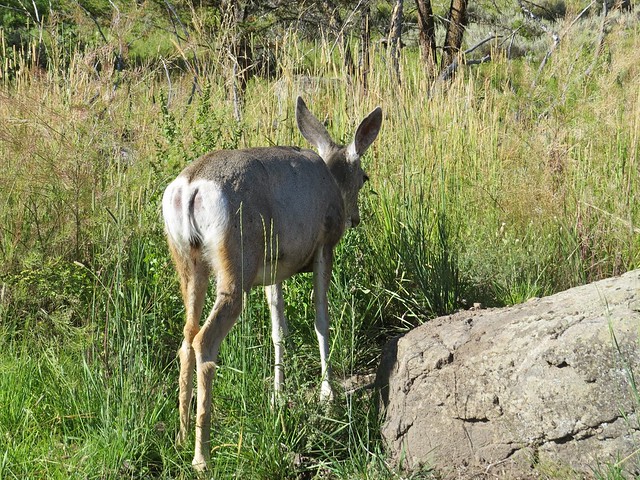
We headed South at Tower-Roosevelt, passing Mt. Washburn, which we had hiked the previous day.
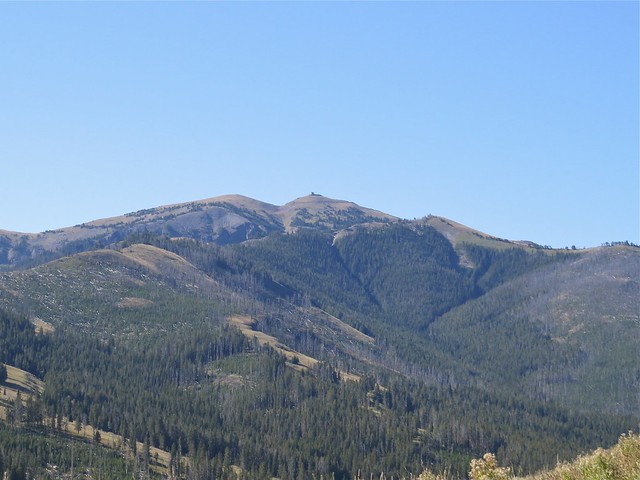
We drove into Canyon Village and hiked down to the Lower Falls, from where we saw The Grand Canyon of Yellowstone.
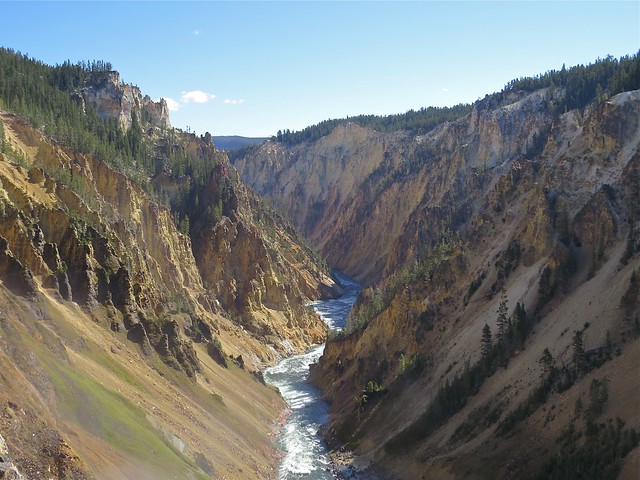
From Lower Falls, we could also see Upper Falls.
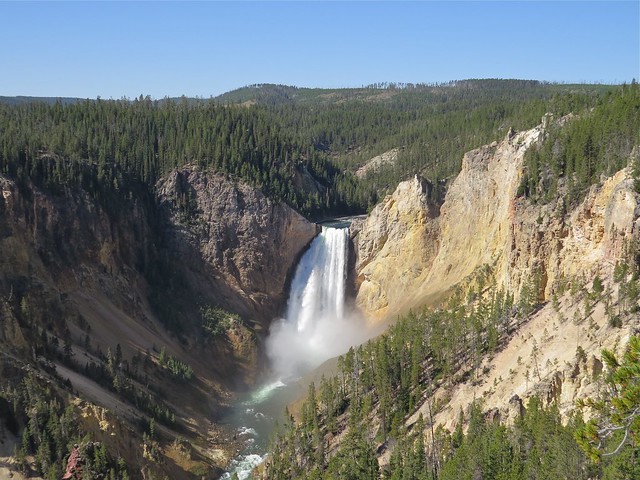
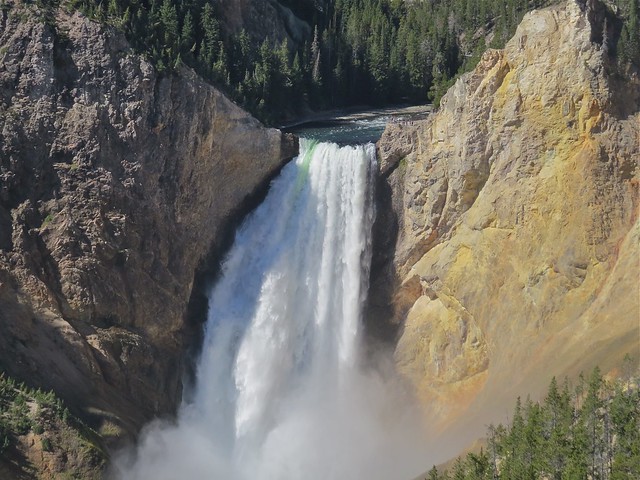
It was fun to see this young Osprey in it's nest below the path very close to the falls.
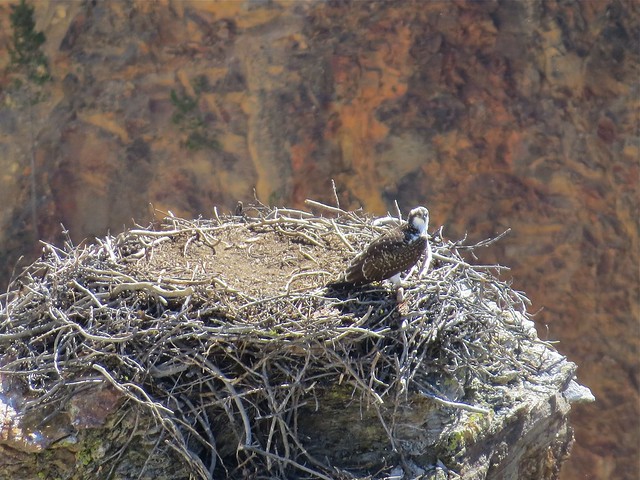
After leaving Canyon Village, we continued South along Yellowstone River toward Yellowstone Lake. Along the river, we saw
Canada Geese, Common Mergansers, Northern Shovelers, Lesser Scaups, Buffleheads, American Wigeons, American Bison, and a Red Fox near Hayden Valley. This was our second fox of the trip.
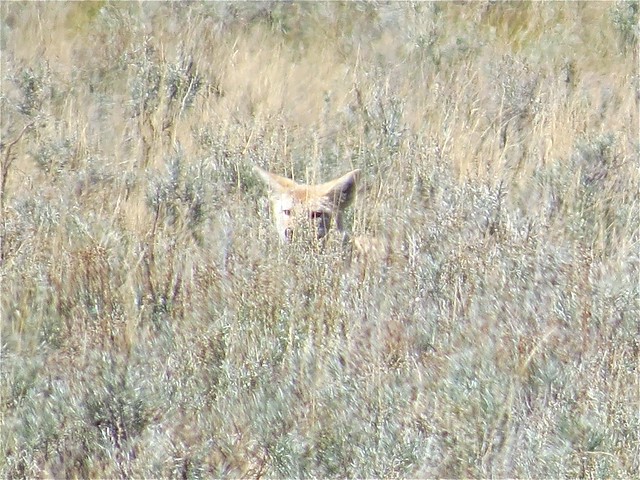
When we got to Trout Creek, we saw a first year, male Barrow's Goldeneye, which was a lifer for both of us!
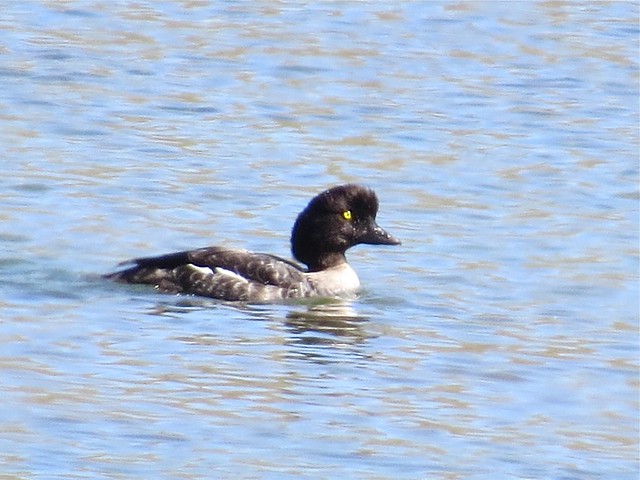
We also saw just one American White Pelican.
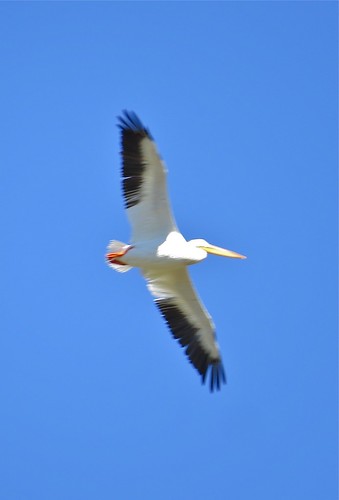
Other birds we saw at Trout Creek included Mallards, wigeons, and shovelers. Based on a tip from Matt Fraker, we checked Le Hardy Rapids for Harlequin Duck, but only found eight Common Mergansers, some Buffleheads, Lesser Scaups, and Canada Geese.
On our way to Gull Point, we stopped to see the Mud Volcano.
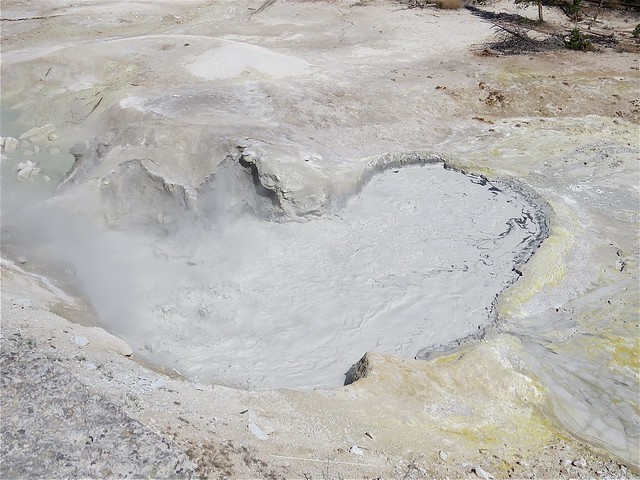
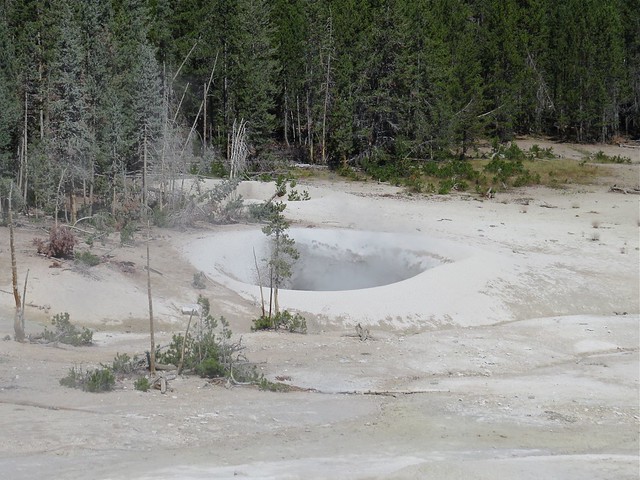
Then we continued South to Bridge Bay. At Bridge Bay, we had Yellowstone Lake to the East and a dark morph Swainson's Hawk hunting on the West side of the road.
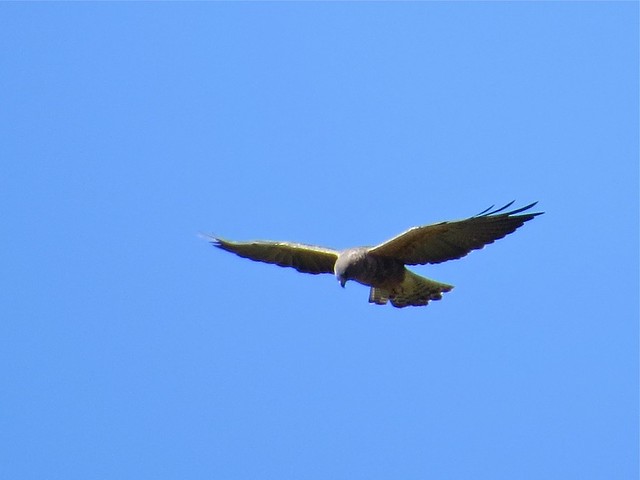
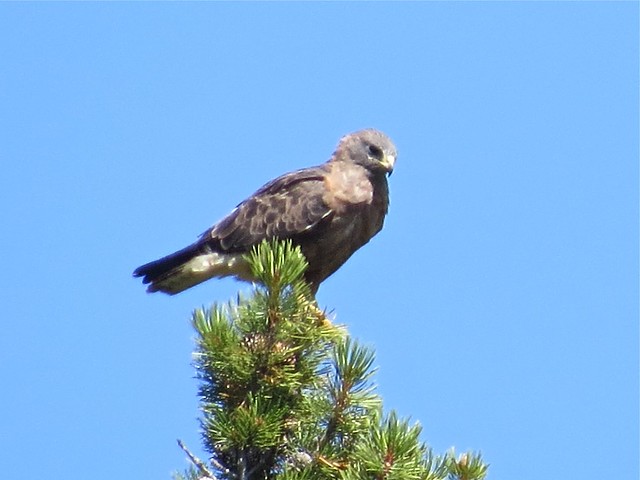
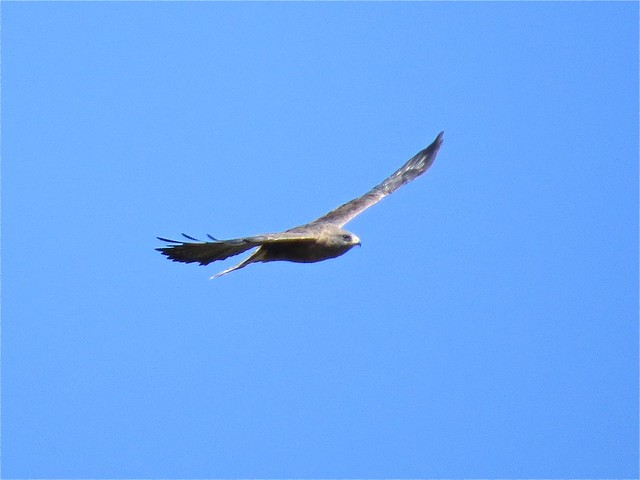
At Gull Point, there were no gulls, but there were plenty of young Barrow's Goldeneyes hanging out together.
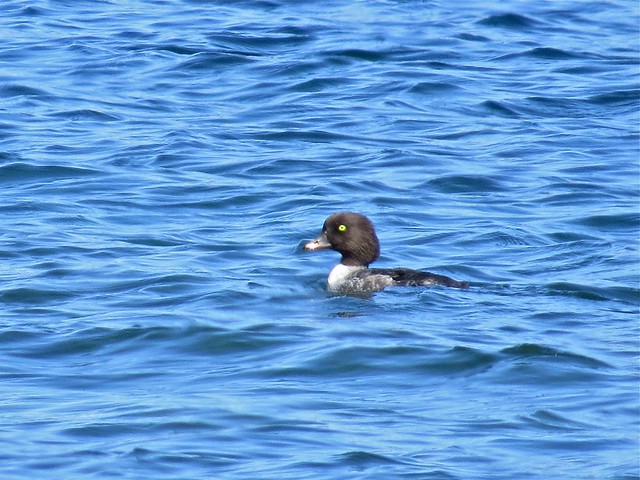
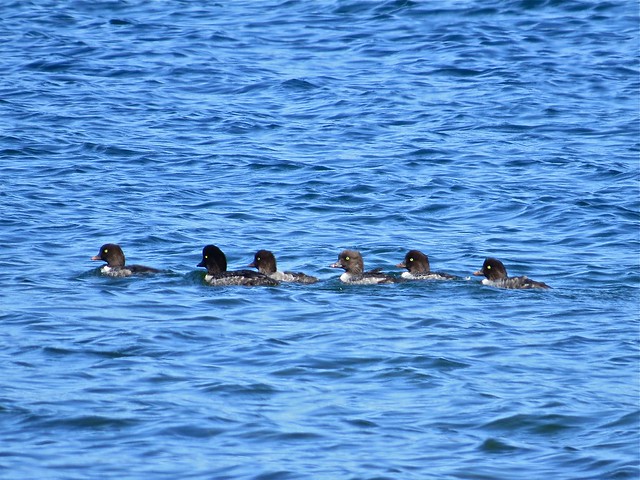
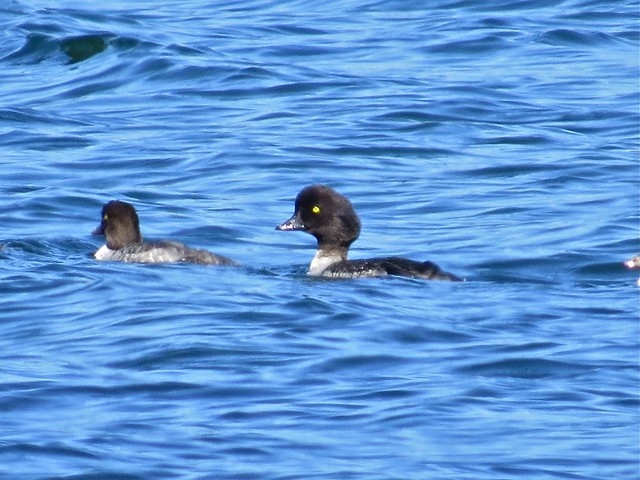
We doubled back toward Fishing Bridge, and saw the Swainson's Hawk again near the same spot.
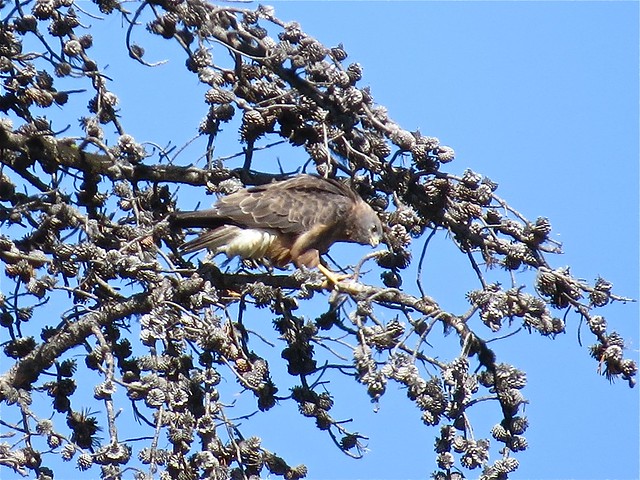
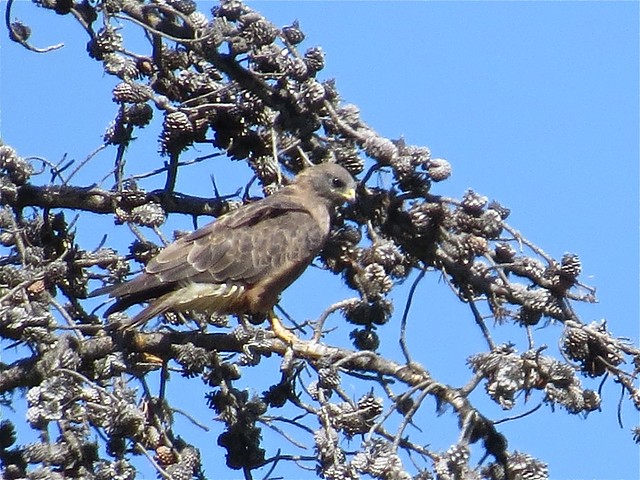
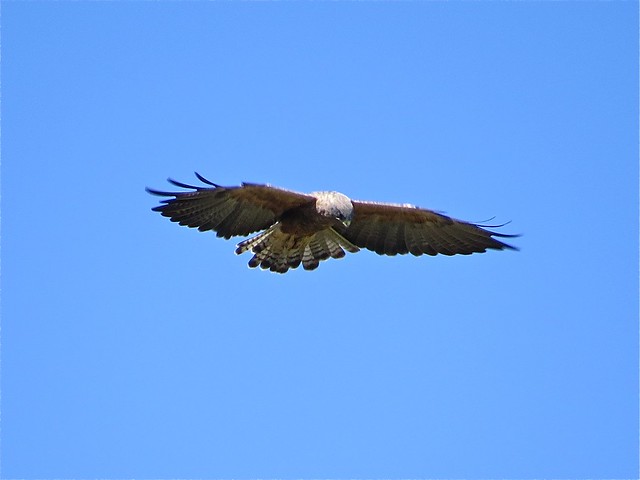
We saw more Gray Jays in Fishing Bridge, but we did not see much from the actual bridge. Yellowstone Lake was impressive to see. Around the edge of the lake, all of the hot pots were a reminder of the volcano underneath the lake. We continued along the North edge of the lake and exited the park through the East Entrance. Then we continued to drive East toward South Dakota.
On our drive toward North Dakota, we saw these incredible mountains.
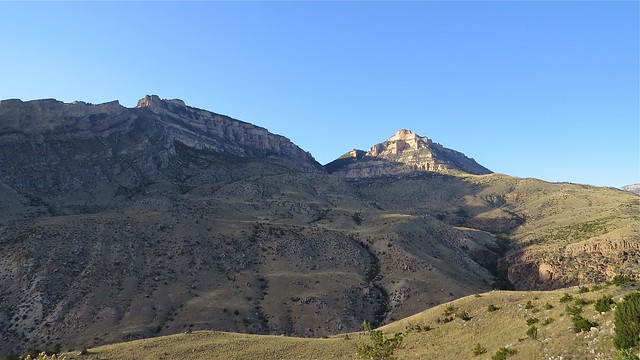
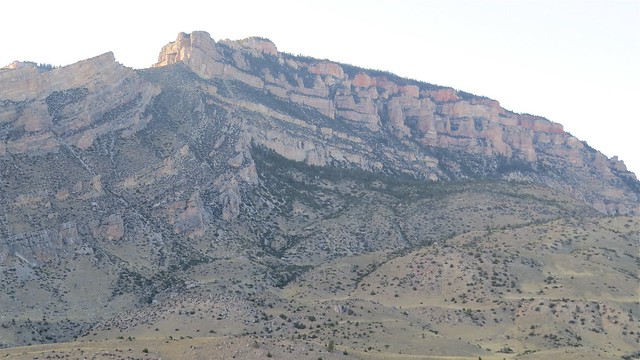
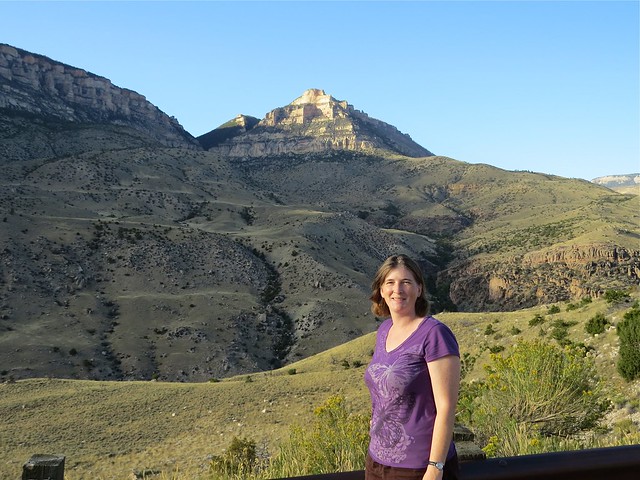
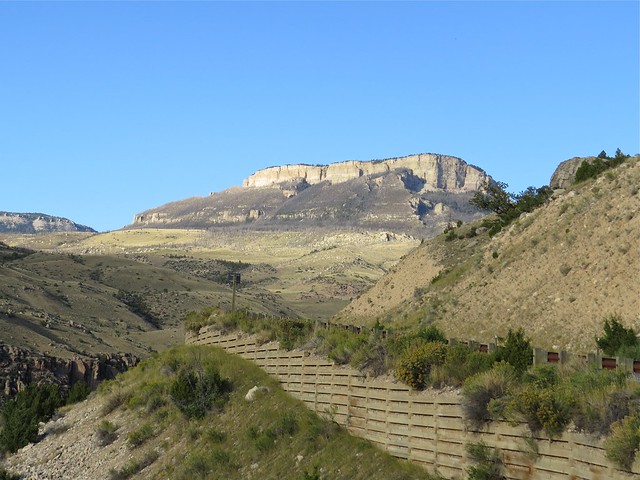
Just past the town of Greybull, we saw five Wild Turkeys. Then at last, we saw a Mule Deer facing us instead of looking away.
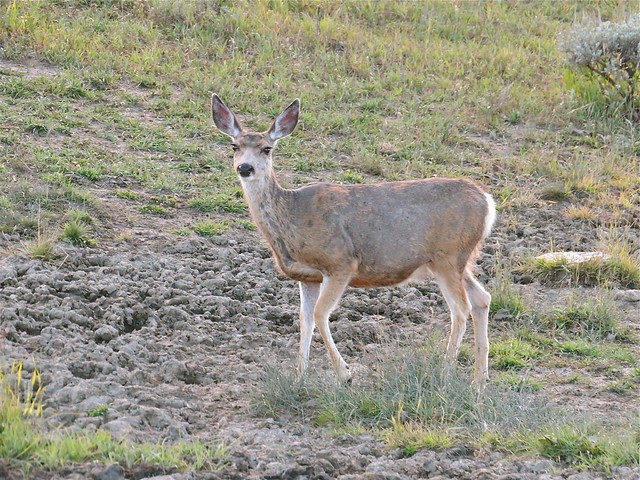
Possibly our most exciting citing of the entire trip was this bull Moose that Carrie noticed 40 miles South of I-90 on 14 between Greybull and Sheridan. As we watched it, it seemed to be walking toward our car. Carrie eventually decided to drive on before it got too close to us.
